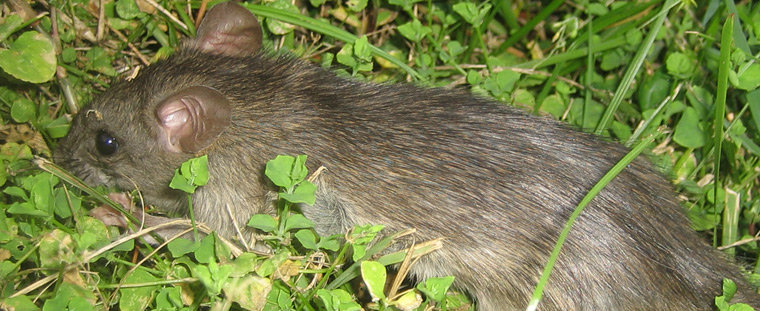-
info@aaanimalcontrol.com
Call us for help in your town
Humane Wildlife Education
How to Keep Rats Out of My Garden
Need rat removal in your hometown? We service over 500 USA locations! Click here to hire us in your town and check prices - updated for year 2020.
Rats are trespassing on your property because
something attracts them there. And that something
is usually food. In most cases, they’re attracted
to the smells coming from your unsecured garbage
can, or pet or livestock food, and only later
discover the goodies in your garden.

Make sure you’re up to code with rat prevention
all over your household, both outside and inside.
- Secure the lid of your trash cans;
- Keep trash cans in the garage and not outside, if possible;
- Don’t leave pet or livestock food outside after the animals are done eating (not even the dishes);
- Make sure you keep a clean trash can area where garbage doesn’t fall on the ground or overspills from the cans;
- Make sure you don’t facilitate rodent access to your house. Check for any and all possible rat points of entry and exit, and proceed accordingly if evasion signs can be observed;
- Don’t facilitate rat access to your attic. This means you’re not to leave anything leaning or hanging on your exterior walls – ladders, tools, decorations, firewood, and so on.
If rats are already causing damage to your garden, and you’ve concluded they haven’t reached any other part of your household, then begin eliminating them with lethal snap traps – it’s the most efficient and humane tactic you can use. Read more on this website about how to properly set traps by using rat behavior and biology knowledge. Once the invasive rats are dealt with, and all other prevention measures are in place, you might consider installing a fence around your garden. Rats can be very good climbers and jumpers, though, so an electric fence might be a good idea. Don’t use plastic or wood for the fence – the rats won’t have any trouble chewing through these materials.
Don’t use poisons or so-called repellents. Poisons are nasty, ineffective, and can bring on even more problems such as necrophages invited by the smell of rotting rat carcasses, killing other innocent animals that will maybe consume the poison or the poisoned rat carcass, or releasing toxic substances in your garden. Repellents almost never work, and it is my educated opinion that you will only waste time and money with them – meanwhile, your rat situation will become even harder to tackle.
You always have the choice of consulting with or hiring a wildlife control expert, and I encourage you to get in contact with such a professional even if just to ask for advice. For more information, you may want to click on one of these guides that I wrote:
How much does rat removal cost? - get the lowdown on prices.
How to get rid of rats - my main rat removal info guide.
Example rat trapping photographs - get do-it-yourself ideas.
Rat job blog - learn from great examples of rat jobs I've done.


















